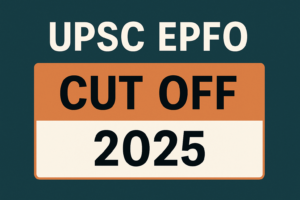Table of Contents
Introduction
Affirmative actions have been implemented to address historical and social justice through reservations in education, jobs, and political representation, aimed to uplift underprivileged groups like SCs, STs, and OBCs, as mandated by the Constitution for social justice and equality.
Body
Comprehensive policies promoting equity and social justice as follows:
- Reservation policies- (a) Education & Employment – for SCs, STs, OBCs under Article 15(4), 16(4) etc.
- Tribals– PESA act, SC & ST ( prevention of atrocities act 1989); to ensure they are not discriminated against in the society.
- Setting up of National Commissions for ST, SC , OBC, Women– to implement the welfare schemes, and oversee the progress being made.
- Affirmative Schemes- (a) Scholarships– Eg Eklavya Scheme, Nai Manzil scheme, Maulana Azad National fellowship schemes. (b) National safai karamcharis development Corporation- for the rehabilitation of manual scavengers. (c)Housing Schemes- such as PM- Awas yojana – aimed at affordable housing for weaker Sections. (d) Financial Inclusion– PM-JAY, Stand Up India etc.
Beneficiaries are yet deprived of these advantages due to
- Structural barriers- (a)Implementation issues- as State, Central & District are acting in Silos and not together. (b) At the planning stage non- involvement of the stakeholders for better feedback.
- Institutional barriers- Inadequate representation in key areas even after affirmative action.
- Poor implementation- (a) Corruption – leading to diversion, Ghost beneficiary, black marketing Eg. PDS
- Socio-economic challenges- (a) social stigma and deep rooted caste based discrimination still widely prevalent in indian society; (b) Perpetuation of stereotype and biases.
- Creamy layer & Elite capture- only the affluent individuals within the reserved section are getting benefitted. Eg. Pooja Khedkar
Way forward–
- Sub categorization of beneficiaries- identification of the most disadvantaged sections for better targeting.
- Strengthening Implementation – with evidence based targeting and monitoring mechanism for effective implementation.
- Promotion of social inclusion & awareness- (a) fostering the culture of inclusivity, (b) Diversification of beneficiaries
Though the Constitution envisions affirmative action for equity and social justice. Improved targeting, greater accountability, and proactive measures addressing economic and social disparities are needed. A nuanced approach focusing on intra-group inequalities, skill development, and awareness is crucial for its effectiveness.
| Related Post | |
| UPSC Mains GS 1 Question Paper 2024 | UPSC Mains GS 1 Analysis 2024 |
| UPSC Mains Essay Question Paper 2024 | UPSC Mains Essay Analysis 2024 |
| UPSC Mains GS 2 Question Paper 2024 | |


 UPSC EPFO Result 2025 Out: EO/AO and APF...
UPSC EPFO Result 2025 Out: EO/AO and APF...
 UPSC CSE Interview Schedule 2025: Dates,...
UPSC CSE Interview Schedule 2025: Dates,...
 UPSC EPFO Cut Off 2025 (Expected): Categ...
UPSC EPFO Cut Off 2025 (Expected): Categ...

























